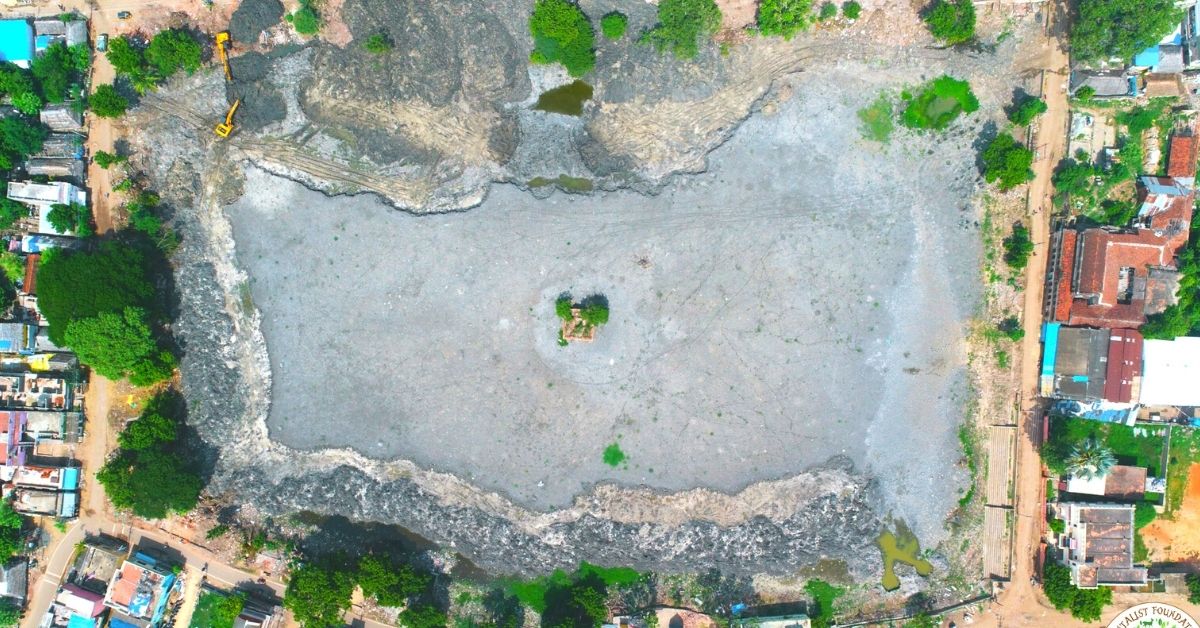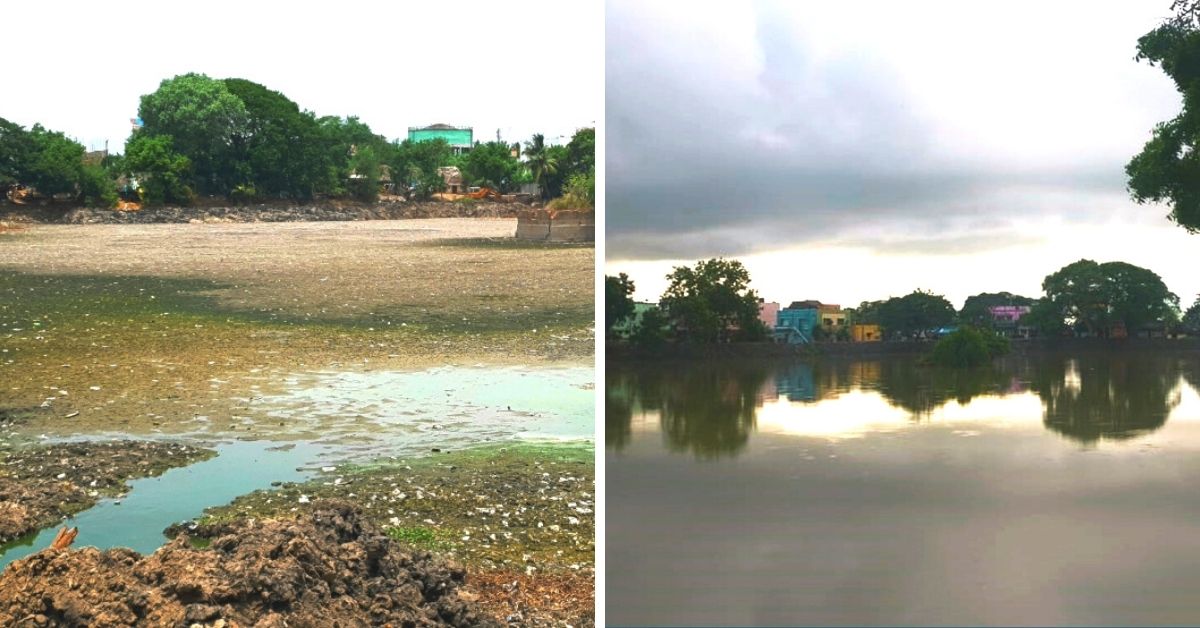Once known for their religious significance and beauty, ponds and lakes in the ancient town of Chidambaram in Cuddalore district of Tamil Nadu have been now reduced to polluted bodies.
From mounting encroachments, rampant dumping of waste to sewage outfalls directly into the river, several factors are responsible for the deplorable plight of the natural water resources in a town that was once ruled by the Cholas and Pandyas.
When IAS Vishu Mahajan was posted as the Sub-Collector of Chidambaram division, Cuddalore district in 2018, there was already a public outcry to restore the local lakes. So, he channelised people’s enthusiasm and launched a massive restoration drive.
“There are close to 15 lakes, and all of them are interconnected. So if waste is dumped in one lake, it passes through others before meeting the sea. Lakes hold a special place for people as some of them are named after saints or have culture association. Like for example, while desilting the Oma Kulam lake, two defunct wells were found dating back to the 12th Century AD or the Chola empire. Thus restoring the lakes is much more than administrative work,” Vishu tells The Better India.

“Since the area is a flood-prone area, the idea is to repurpose the silt removed from the lakes to make bunds, capture the excess water and percolate it underground,” he adds.
Vishu collaborated with the Environmentalist Foundation of India (EFI) to carry out the mammoth task of cleaning eight lakes. After two lakes were rejuvenated, the municipality signed an MoU with the EFI, a voluntary organisation that specialises in a scientific revival of water bodies.
The Commissioner also tied up with the Slum Development Authority of the state to rehabilitate encroachers living close to the lakes. Land to build houses for nearly 600 families has already been identified, and for now, the residents are living in temporary houses.
Started in early 2019, a total of two ponds and lakes have been restored. The administration is also working to improve the town’s sewage system by mapping leaked inflow points of sewage.
Though led by Vishu, various stakeholders – from the EFI to average citizen – played a significant role during the cleanup drives. People also contributed financially to carry out the activities. Vishu, along with EFI, raised nearly Rs 6 Lakh through crowdfunding on the website Keto within a month.
“It is a community-led project where citizens whole-heartedly dedicated their holidays and weekends to clear garbage from various lakes. EFI’s experience in cleanups made the task faster and easier. Our first lake was ready within a month,” adds Vishu.
E.F.I's #EcoRestoration of the Mamangalam Lake!
A unique restoration effort in the Ancient temple town of #Chidambaram!
Watch what's unique about this restoration effort!
Volunteer for India and her Environment with E.F.I, Jai Hind#efi #restoration #innovation pic.twitter.com/QxrIGlA8U4
— Environmentalist Foundation of India (@EFIVolunteer) September 28, 2020
How The Lakes Are Restored
In the first phase, six lakes – Ayee Kulam, Gnanaprakasam Kulam, Omakulam, Nagachery Kulam, Kumaran Kulam were selected to be restored in four steps.
The first step was to convince people occupying 400 structural encroachments of houses/shops for rehabilitation, which wasn’t as difficult as anticipated, “Some families were living on the banks for nearly forty years, and it was amazing to see their corporation and contribution to establish the ecosystem,” says Vishu.
EFI also conducted various awareness drives, including painting walls with messages of keeping lakes clean, “Cleanups are not a one-time activity. A grass-root behavioural change is necessary to prevent the water bodies from getting polluted again,” Arun Krishnamurthy, founder of EFI tells The Better India.
Next, all kinds of garbage including weeds, paper, plastic and other waste matter were cleared with the help of EFI volunteers, citizens and district officials through shramdan (volunteering). The collected waste was safely disposed of by the municipality.
The EFI rented the machinery with the crowdfunding money to desilt tanks and made bunds from them on the borders of the lakes.
Once the borders were ready, local volunteering groups like the Rotary club and the Red Cross were roped in to plant saplings around the lake and beautify them. And finally, fences were created around the lakes to protect them and prevent any future encroachment.
“The impact of the cleanup drive was seen at the onset of monsoon last year when the lakes and ponds were filled with water. A rise in the presence of birds was also recorded,” says Arun.
Another long term significant impact will be recorded in increasing the water storage capacity and recharging of drying aquifers. While the water will not be extracted to meet any kind of needs, it will hopefully restore overall the ecosystem.
(Edited by Vinayak Hegde)
If you found our stories insightful, informative, or even just enjoyable, we invite you to consider making a voluntary payment to support the work we do at The Better India. Your contribution helps us continue producing quality content that educates, inspires, and drives positive change.
Choose one of the payment options below for your contribution-
By paying for the stories you value, you directly contribute to sustaining our efforts focused on making a difference in the world. Together, let's ensure that impactful stories continue to be told and shared, enriching lives and communities alike.
Thank you for your support. Here are some frequently asked questions you might find helpful to know why you are contributing?

